Criteria and Eligibility: 2023 Pattis Family Foundation Global Cities Book Award
The Pattis Family Foundation Global Cities Book Award aims to improve our collective knowledge of actors, communities, and/or institutions that significantly shape global cities.
Submissions for the 2023 award are now closed. Learn more about the award and the list of winners.
Background
 The winning book will enhance our understanding of issues affecting urban areas, carry substantial policy implications, and be accessible in terms of its content for the general reader, as well as applicable to policymakers and academics. This award, and the activities surrounding it, will recognize and elevate important books contributing to the understanding and analysis of cities and the many issues urban communities face. It will also expand global awareness and discussion about the ideas and policy recommendations in these books.
The winning book will enhance our understanding of issues affecting urban areas, carry substantial policy implications, and be accessible in terms of its content for the general reader, as well as applicable to policymakers and academics. This award, and the activities surrounding it, will recognize and elevate important books contributing to the understanding and analysis of cities and the many issues urban communities face. It will also expand global awareness and discussion about the ideas and policy recommendations in these books.
Eligibility Criteria for 2023
The book must be:
- An original work of nonfiction (no reprints, textbooks, edited compilations, or anthologies)
- Accessible to the public as well as to academics and policymakers
- Copyrighted from January 2021 to December 2022
- Published in English (books judged on time they were published in English, not original publication date if first published in other language)
- No self-published works or e-book-only titles
The book must:
- Focus on cities–urban geographies, topics, and issues
- Explore the actors, communities, and/or institutions that shape global cities
- Improve collective knowledge of the dynamics and influence of global cities
- Enhance understanding of policies and issues affecting urban areas
- Address local and global actors, forces, and trends that shape neighborhoods, cities, or metropolitan areas, and that involve urban policy, planning, and/or governance
Publishing Requirements
- Available to the public in hardcover or bound paperback form
- Published by a reputable academic or trade press
- Copyrighted between January 2021 and December 2022
Content
- Must be public-facing
- In terms of form and writing style, the book must be accessible to academics, policymakers, and the public.
- In terms of content, the book must focus on urban geographies, topics, and issues pertaining to culture, technology, and society.
- May be generalizable to other urban contexts and touch on sectors like business, civics, education, and the arts
- Should explore actors, communities, and/or institutions that significantly shape global cities
- Must be nonfiction
Impact
Must have policy potential:
- The book improves our collective knowledge of actors, communities, and/or institutions that significantly shape global cities.
- The book enhances our understanding of significant policy and policy-adjacent issues affecting urban areas.
- The book explores ideas that have the potential to shape contemporary policy-making.
Focus on 'Global City'
Must focus on topics related to global cities in one of two ways:
- The book addresses policy or policy-adjacent issues that center on interactions among local and global actors, forces, and trends that shape neighborhoods, cities, or metropolitan regions.
- The book explores any scale of policymaking processes that involve city or metropolitan governance.
For specific queries, contact:
Rachel Abrams
Former Global Cities Officer
2023 Advisory Board Chair
Ian Klaus
Founding Director, Carnegie California

Ian Klaus is a leading scholar on the nexus of urbanization, geopolitics, and global challenges, with extensive experience as a practitioner of subnational diplomacy. Klaus co-led and served as the series editor for the Summary for Urban Policymakers, a landmark report that distilled over 8,000 pages of IPCC science into 80 pages of accessible, policy-relevant material for urban policymakers.

2023 Advisory Board
Alice Charles
Director for Cities, Planning & Design, Arup

Alice Charles focuses on cross-cutting urban strategies in sustainability, climate change, resilience, and mobility and leads Arup’s global strategic partnerships with international organizations, mayoral networks, and foundations. Previously, she led the World Economic Forum’s cities and real estate portfolios, produced all city and urban development content, and curated summit events.

Chan Heng Chee
Ambassador-at-Large & Professor, Lee Kuan Yew Centre for Innovative Cities
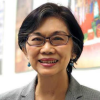
Ambassador Chan Heng Chee is ambassador-at-large with the Ministry of Foreign Affairs, Singapore, and a professor at the Lee Kuan Yew Centre for Innovative Cities, Singapore University of Technology and Design. Previously, she was Singapore’s ambassador to the U.S. and Singapore’s permanent representative to the United Nations. In 2018, she was named the Council's Marshall M. Bouton Asia Fellow.

Adrian Ellis
Director, AEA Consulting and Chairman, Global Cultural Districts Network
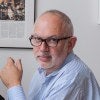
Adrian Ellis founded AEA Consulting (1990) and the Global Cultural Districts Network (2013). He is recognized as having contributed to the cultural sector's deeper understanding of a number of areas including the development of successful cultural building projects, the role of cultural districts in social, economic, and cultural development, and more.

Margarita Gutman
Director of the Observatory on Latin America, The New School
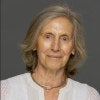
Margarita Gutman is professor of urban studies and international affairs and director of the Observatory on Latin America at The New School. She is also profesora consulta pro bono and a member of the doctoral commission of the School of Architecture, Design, and Urban Planning at the University of Buenos Aires. She is the author, co-author, or editor of 19 books.

Mona Harb
Professor of Urban Studies and Politics at the American University of Beirut
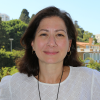
Mona Harb is professor of urban studies and politics at the American University of Beirut and is co-founder and research lead at the Beirut Urban Lab. Her research includes governance and territoriality in contested sovereignty, urban activism, oppositional politics, and community in fragmented cities. She is the author, coauthor, or editor of four books and serves on several editorial boards.

Race, class and communities reporter, WBEZ
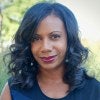
Natalie Moore is an award-winning journalist covering segregation and inequality for WBEZ. Her reporting has tackled race, housing, economic development, food injustice, and violence. Moore is the author of the book The South Side: A Portrait of Chicago and American Segregation and is a 2020 Richard C. Longworth Media Fellow for international reporting.

Aromar Revi
Director, Indian Institute for Human Settlements

Aromar Revi is the founding Director of the Indian Institute for Human Settlements, which he has built into one of the world’s leading education, research, training, advisory, and implementation-support institutions located in the global south. He has led over 200 major consulting and research assignments, is widely cited, and helped structure development investments of over $15 billion.

Edgar Pieterse
Director, African Centre for Cities
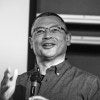
Edgar Pieterse is founding director of the African Centre for Cities (ACC) at the University of Cape Town and South African Research Chair in Urban Policy. His research explores urban development politics, everyday culture, publics, radical social economies, responsive design, and adaptive governance systems. He is consulting editor for Cityscapes and is the author, coauthor, or editor of ten books.

Ato Quayson
Jean G. and Morris M. Doyle Professor in Interdisciplinary Studies, Stanford University
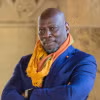
Ato Quayson is also a professor of English at Stanford. His book "Oxford Street, Accra: City Life and the Itineraries of Transnationalism" (2014) was co-winner of the Urban History Association's 2015 Best Book Prize (non-North America) and was one of The Guardian’s 10 Best Books on Cities in 2014. Additionally, he has authored, coauthored, or edited 13 books.

Saskia Sassen
Robert S. Lynd Professor of Sociology, Columbia University
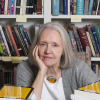
Saskia Sassen is the Robert S. Lynd Professor of Sociology and co-chairs the committee on global thought at Columbia University. Her 1991 book "The Global City: New York, London, Tokyo" is credited with coining the term "global cities"; she is the author or editor of 13 books that are translated into 21 languages. She contributes regularly to OpenDemocracy and The Huffington Post.

Karen C. Seto
Frederick C. Hixon Professor of Geography and Urbanization Science, Yale University
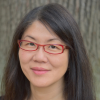
Karen C. Seto is the Frederick C. Hixon professor of geography and urbanization science at the Yale School of the Environment. Professor Seto is one of the world's leading experts on contemporary urbanization and global change and has served on numerous national and international scientific bodies, served as co-lead for the IPCC, and served on numerous U.S. National Research Council (NRC) Committees.
